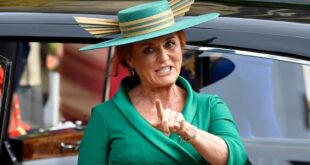UK equity rallied strongly in early trade on Friday as investors welcome the removal of several key risks that have been hanging over the stock market, sparking the pound to post its biggest gain against the dollar in two and a half years, with £1 worth $1.34.
The market now has more confidence that Prime Minister Boris Johnson should be able to pass a Brexit deal and for the UK to formally leave the EU at the end of January 2020.
The Conservative majority removes the threat of Labour trying to renationalise many sectors, explaining why shares in Royal Mail (RMG) jumped more than 5% to 244.2p, transport companies rallied – Go-Ahead (GOG) up 9% to £21.34 and Stagecoach (SGC), jumping 12.7% to 150.5p.
The domestically facing FTSE 250 index jumped 4% in early deals, while the benchmark FTSE 100 also rallies, up 107.39 points, or roughly 1.5%, to 7,380.86.
Banks, retailers, housebuilders and the utilities, which faced nationalisation under the Labour Party, are all higher in early trading.
Royal Bank of Scotland (RBS) and Lloyds Banking (LLOY) are up more than 10% and 8% respectively at 258p and 65.81p, while Virgin Money UK (VMUK) soared nearly 17% to 212.5p.
Other big movers include BT (BT.A) and British Gas-owner Centrica (CNA), up 7.8% and 6.5% respectively at 204.05p and 85.94p, both now freed from potential nationalisation threats.
UK housebuilders are also firm winners on Friday as investors rally around UK domestic stocks, led by Taylor Wimpey’s (TW.) 12% jump to 195p. Closely following are Berkeley (BRK) and Persimmon (PSN), both 11% ahead at £50.16 and £27.98, while estate agents Foxtons (FOXT) and Savills (SVS) are also well ahead, up more than 12% to 91.3p, and 11.6% at £11.33.
FTSE 350’s biggest risers

But it is not one-way traffic for UK equities with large international income earners facing sell-off pressure, led by rat catcher Rentokil Initial (RTO), down 2.3% to 424.9p. Big pharma is also on the back foot with the rise in the pound likely to dampen sterling profits earned in places like the US.
GlaxoSmithKline (GSK) and AstraZeneca (AZN) both post declines, albeit modest, off 1.8% at 0.7% at £17.116 and £72.22 respectively.
But other big foreign earners, such as tobacco company Imperial Brands (IMB) and distribution business Bunzl (BNZL), reversed earlier declines to get back into positive territory. Imperial is now up 1.9% at £17.154, while Bunzl is a modest 1p higher at £20.71.
In corporate news, outsourcing firm Serco (SRP) has said it expects to report full-year 2019 revenue growth of 14% to £3.2bn following particularly strong income growth in the second half.
But this is not a day to dwell on the slim pickings of company announcements, not when investors must now concentrate on the shape and structure of any trade deal down the line, and what could happen to the UK at the end of the 2020 transition period.
Short-term the Conservatives have discussed increased spending which could give the economy a boost. Longer-term still remains uncertain and so markets are not going to keep opening bottles of champagne to toast a new dawn for the country.
Issue Date: 13 Dec 2019
Source link

